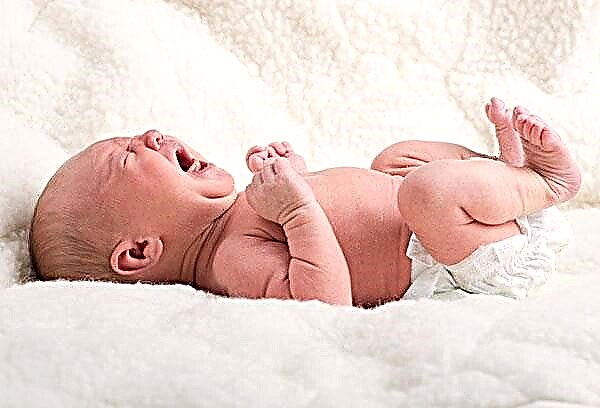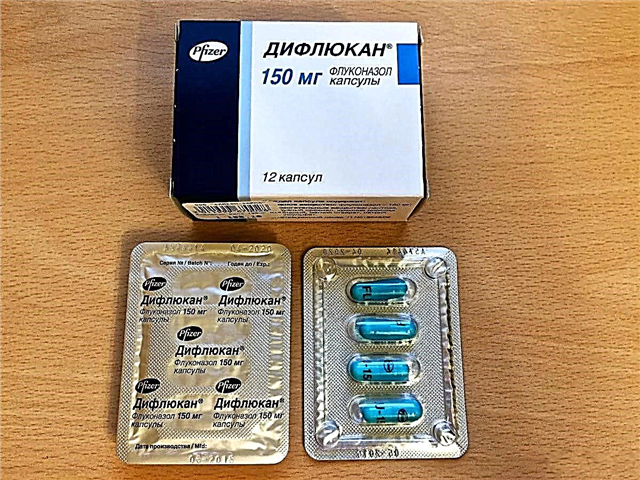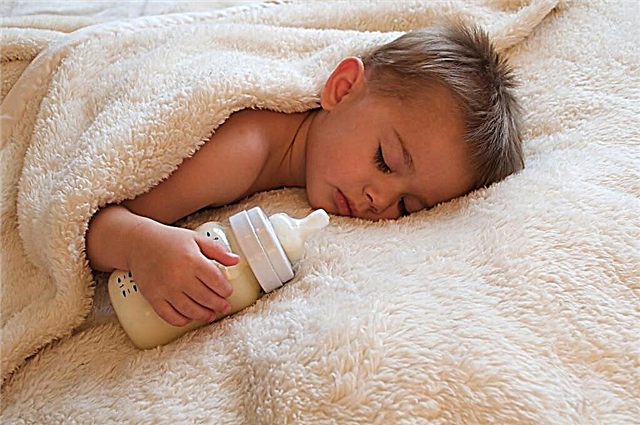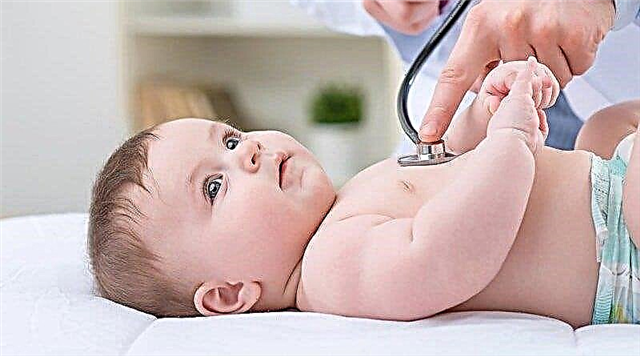A newly born baby brings with it a lot of happiness and just as many worries. He often cries, and loving parents find it difficult to determine the reason for this behavior. Sometimes a newborn baby grunts, bends and blushes at the same time. For a young mother, this is quite unusual and always alarming.

The newborn may begin to groan and arch.
Reasons why a newborn grunts
They can arise from both the physiological characteristics of the baby and have a pathological nature (then the intervention of a pediatrician is required). Crying, grunting and other strange sounds made by a child are his original language, a reaction to external and internal stimuli.
Colic
One of the most common causes of groaning in newborns and children in the first 3-4 months of life is increased flatulence. The immature digestive system is just adapting to extrauterine nutrition, so the accumulating gases painfully press on the walls of the intestines and stomach, which provokes colic. Children feel discomfort, so they strain their tummy (it becomes very hard to the touch), babies push, reflexively pull their legs to their stomach, trying to find a more comfortable position. All this is accompanied by crying or grunting and redness of the baby's skin.

With colic, the baby's tummy swells
Diarrhea
Problems with bowel movements, such as frequent and thin bowel movements (diarrhea), are a big problem for newborns. It can be associated with both an inappropriate mixture and an intestinal or viral infection.
Important! This situation is often accompanied by dehydration of the body, then it is urgent to water the baby.
Sometimes diarrheal stool is accompanied by foam, it is replaced by constipation, then diarrhea again, all this against the background of colic, especially strong after feeding. These are signs of lactase deficiency, when there is little or not enough lactase enzyme in the child's body to break down milk sugar - lactose. As a result, unbroken sugar begins to ferment in the intestines, causing increased peristalsis and gas formation. As a rule, lactase deficiency is transient (temporary) in nature and disappears as the infant's gastrointestinal tract matures a few months after birth.
Constipation
The opposite of diarrhea is constipation, it is also associated with the immaturity of the child's gastrointestinal tract and errors in the mother's diet or inappropriate formula. The average "norm" of bowel movements for newborns is 2 to 4 times a day (the baby can poop after each feeding).
If the number of soiled diapers drops sharply (the feces are dark in color and very hard, "pea"), the child begins to arch the back and blush, trying to push, this is most likely constipation. The baby gets hurt, which he reports first by grunting and then crying.
Crusts in the nose
When a newborn grunts constantly during sleep, the problem may be crusts of dried mucus formed in the nasal passages. It is difficult for children of this age to breathe through the mouth, therefore, difficult nasal breathing gives them great discomfort, prevents them from getting enough sleep and sucking. The baby often releases the breast or bottle during feeding to catch its breath and may cry from hunger.
The reasons for the formation of annoying baby crusts can be:
- poor hygiene of the nasal cavity;
- dry air in the room;
- high temperature.
Diaper or diaper
A wet or dirty diaper can also give the baby unpleasant sensations of itchy skin and irritation of sensitive skin. The baby will cry or grunt, try to bend over to calm him down and find a more comfortable position.
If, when groaning, the child simply pushes, but does not blush, perhaps he is just emptying the intestines, getting used to the new action of his body. The folds in the diaper can also be the reason for the unhappy grunt of the baby.
Uncomfortable clothes
If the baby's undershirts or bodysuits are not sewn from natural, but from synthetic fabric, then folds may form on it, pressing on the delicate skin, it may be too hot or too cold in them. Since the baby still cannot take off the uncomfortable clothes, the newborn baby grunts, bends and even blushes, trying to get rid of the discomfort and attract the attention of the mother.
Other possible causes
If the baby is artificially fed, his grunting and bending may be the result of an inappropriate size or type of nipple on the bottle, which prevents him from fully sucking.

An uncomfortable nipple on the bottle can cause your baby to groan.
Sometimes in a newborn, gastric contents are thrown into the esophagus through the muscular sphincter (in such crumbs it is still underdeveloped). This condition is called "gastroesophageal reflux" and leads to profuse regurgitation, crying and groaning in babies. From painful sensations in the tummy, they bend and may even turn red.
Overfeeding the baby can also be accompanied by subsequent discomfort in the gastrointestinal tract and grunting during the digestion process. In babies born "hairy", from lying on the back, the hairline on the body sometimes rolls down, to which they can react with displeased groaning.
What to do if a newborn baby groans
When the baby begins to writhe, arch and grunt displeased or pitifully, parents want to help him as soon as possible. First of all, the little man must be reassured with a mother's voice, swinging.
It is necessary to find the cause, if it is physiological, and eliminate it. The humidity rate in the room is above 60%, the temperature is not higher than 22 degrees (easily achieved by using a humidifier).
The child should be unraveled if it can be seen that he is groaning from overheating. It is also advisable to change clothes that are more comfortable for the crumbs, if by grunting it is clear that he is uncomfortable.
The baby's bottom should always be dry and clean, you should immediately change the diaper and lubricate the delicate skin with baby cream or special powder. More frequent bathing of the baby will help to avoid irritation, especially in decoctions of medicinal herbs.
If a newborn after each feeding begins to groan and moan, to arch the back from colic, it is necessary to put it on a tummy on a warm diaper. It greatly facilitates the baby's condition by holding the "column" after eating, this position helps the discharge of gases.

If the child groans with colic, you need to hold him with a column
Crying and grunting from difficult nasal breathing due to dry crusts can be stopped with moisturizing drops (for example, harmless "Aquamaris"), as well as gently remove them with cotton wool soaked in warm saline.
An enema (no more than 30 ml) with warm water or chamomile infusion (or other laxatives approved by the pediatrician) can urgently solve the problem with constipation. In the long term, adjusting the diet of a nursing mother will help to save the baby from digestive problems, from which he grunts, bends and turns red.
If a newborn, in addition to groaning, arching and redness, tightens its legs, has a hard tummy or frequent fetid feces mixed with mucus or streaks of blood, tries to push and cries right away, gains weight poorly and has a weak appetite, an urgent need to consult a doctor. Based on the tests, the pediatrician will select the appropriate treatment.
Tips for preventing grunting in babies
To prevent a newborn baby from groaning and arching, it is necessary to study why he can do this, and take preventive measures, following the advice of pediatricians:
- the correct diet of a nursing mother (without gas-forming products, salinity and smoked meats, legumes and cabbage) or the correct selection of a mixture for the baby;
- selection of baby clothes and diapers of only high quality, made from natural fabrics;
- frequent small meals can help prevent reflux;
- stop swaddling the baby tightly so as not to squeeze the esophageal sphincter;
- daily hygiene of the nasal cavity (cleaning with cotton swabs) to avoid the formation of dry crusts;
- well prevents digestive problems light circular massage of the tummy in a clockwise direction;
Note! Massage should be done just before feeding.

Tummy massage prevents grunting from gastrointestinal problems
- Strengthening the abdominal muscles and better discharge of gases helps the daily spread of the crumbs on the stomach for 10-15 minutes.
Additional Information. In most newborns, problems caused by immaturity of the intestines resolve on their own within 5-6 months after birth.
The newborn is in contact with the world through strange sounds. One of them is grunting, which can be accompanied by arching of the back and redness of the skin. There can be many reasons for this: constipation, diarrhea, uncomfortable clothes or diapers, a dirty diaper, cold or heat in the room, and “traditional” colic. Parents should know these reasons and be able to come to the aid of a grunting baby on their own or together with a pediatrician.



